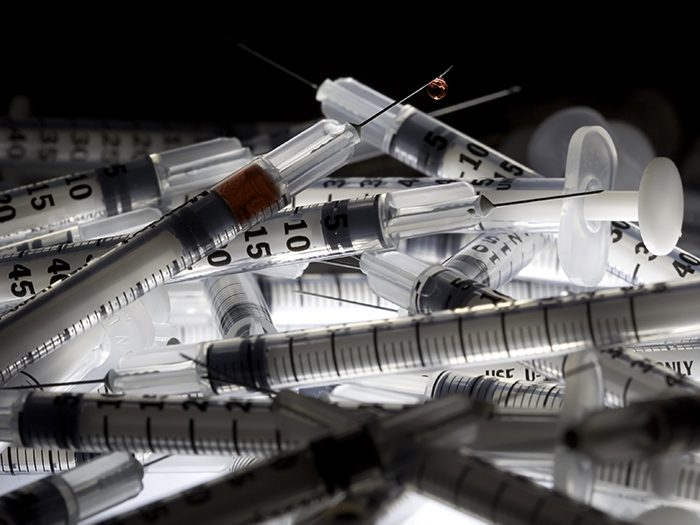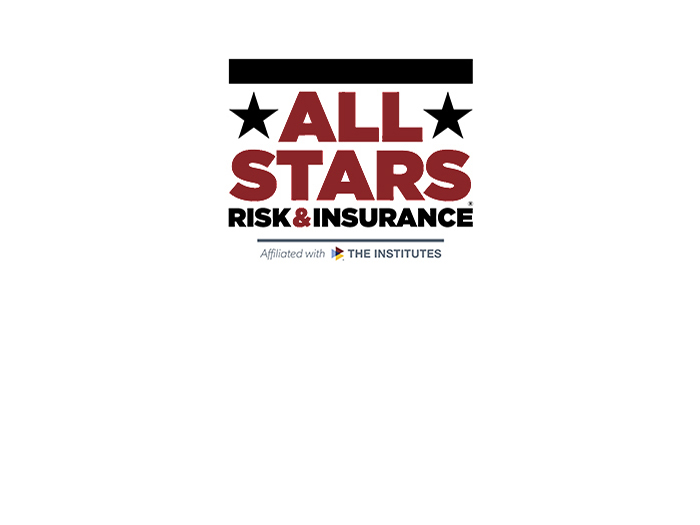Dear Starbucks Customers: Tips Welcome. Needles? Not So Much

The ongoing opioid epidemic has given rise to an alarming side effect: Needle-stick risks for employees of Starbucks and other restaurants across the country — especially in regions hard hit by opioid addiction and heroin use.
What’s going on? Discarded needles and other hazardous items are being left in the restrooms of certain Starbucks locations, raising concerns for the safety of employees charged with cleaning those spaces.
Some are concerned that Starbucks’ decision to open its restrooms to the public has invited trouble, but many say that needles left on the premises were already an issue prior to the decision.
As of January 17, more than 4,100 people have signed a petition on Coworker.org, calling for Starbucks to place needle-disposal boxes in high-risk bathrooms — an initiative that’s already in the works.
Commented one store manager signing the petition: “I worry about my team’s safety and my own when changing trash out in my store. We have found numerous needles in our store in the last year (one just laying in the middle of the cafe floor of all places!) and frankly, I’m over it.”
In a study from NYU’s Center for Drug Use and HIV Research, 58 percent of New York City business managers surveyed said they had encountered drug use in their businesses’ bathrooms and 34 percent had found discarded syringes.
How bad is it? Some employees have reported finding needles not just in the restrooms but also in the seating areas and even the drive-thru. Employees in some locations report finding needles in their workplace nearly every day and have had to take antiviral medication to protect themselves from HIV and hepatitis.
Workers have reported a range of troubling objects and conditions in their stores, including drugs, alcohol bottles, blood on floors and walls, condoms and condom wrappers, and syringes (both capped and uncapped) on floors as well as in the trash.
The problem goes far beyond Starbucks. In a study from NYU’s Center for Drug Use and HIV Research, 58 percent of New York City business managers surveyed said they had encountered drug use in their businesses’ bathrooms and 34 percent had found discarded syringes. Some also reported having found non-responsive individuals onsite, requiring emergency assistance.
Why is this happening? While opioid use is slowing due to aggressive efforts from state and federal government as well as private employers, it remains an ongoing challenge. Initiatives aimed at restricting access to prescription opioids have, in some cases, motivated users to turn to heroin, which produces similar effects as opioid pain medication but at a much cheaper cost.
A 2013 study from the Substance Abuse and Mental Health Services Administration concluded that those using opioids non-medically are 19 times more likely to initiate heroin use. Law enforcement and health officials report a majority of heroin users they encounter previously abused prescription opioids.
According to a 2014 JAMA Psychiatry article, heroin has become more common in suburban and rural areas because of its affordability and accessibility compared to prescription opioids.
What can be done? Teaching employees how to avoid needle sticks is common in health care but less so in the food service sector. Nevertheless, Starbucks, which has been recognized for its commitment to employee health and safety, does provide such training for its staff.
The coffee company also empowers employees who feel unsafe performing a task to raise their concerns with a manager immediately. But the reality is that somebody still has to clean the restrooms and take out the trash, so needle sticks continue to occur.
The company is testing alternative solutions, such as using puncture resistant trash bags. It is also testing the installation of sharps-disposal boxes in certain locations, starting with Seattle.
Authors of the NYU study say that sharps containers are a good first line of defense for businesses at risk and can make a significant impact on reducing accidental employee contact with improperly discarded syringes. As a broader measure, the authors encourage affected communities to support the introduction of local supervised injection facilities.
Learn More: Business Insider dives into the role disposal boxes could play and how workers at Starbucks are responding to this growing problem. &








